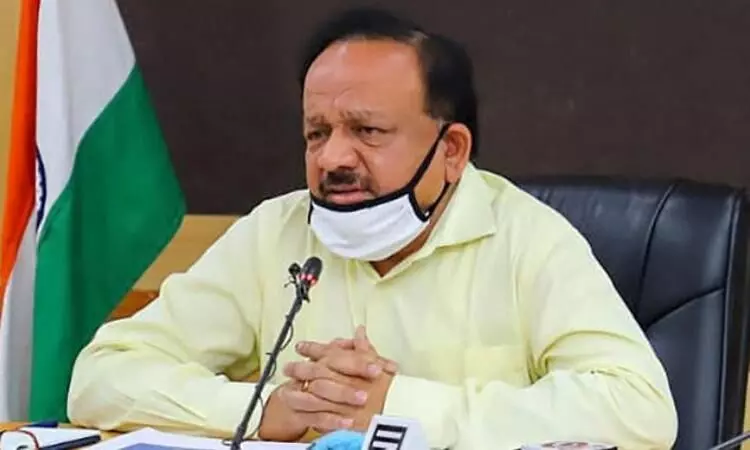
Herd immunity still far off, don't get complacent: Health Minister
text_fieldsUnion Health Minister Harsh Vardhan, Image credit: PTI
New Delhi : Union Health Minister Harsh Vardhan on Sunday said that Indians were not even close to achieve herd immunity against Covid-19 pandemic.
In the third episode of the 'Sunday Samvaad' weekly interaction, the minister also cautioned that the ICMR's Sero survey report should not create a sense of complacency.
His warning came on the day when the World Health Organisation (WHO) also advised against any attempts to achieve herd immunity or to hope that it would eventually save people.
"Herd immunity or natural population immunity is not an option. Let's put our energy, focus, workforce, actions into what works," said Maria Van Kerkhove, WHO's Covid-19 Technical Lead.
Harsh Vardhan noted that the first sero-survey conducted by the Indian Council of Medical Research (ICMR) in May revealed that the nationwide prevalence of novel coronavirus infection was only 0.73 per cent.
"Even the soon-to-be-released second sero-survey's indications are that we are far from having achieved any kind of herd immunity which necessitates that all of us should continue following Covid-appropriate behaviour," he added.
On the emerging evidence that the disease not only impacts the lungs but other organ systems too, especially cardiovascular and renal, the Minister said that the Union Health Ministry has already set up committees of experts to look into these facets.
Besides, he informed that that states and Union Territories have been advised to lower the prices of Covid tests.
"In the early days of the pandemic, as the kits were imported, the price tended to be high. But now, supplies of testing kits have also stabilised, and domestic production of these kits have also commenced," Harsh Vardhan said, adding that his ministry has written to states and UTs to engage private laboratories at mutually agreeable lower rates.
The minister also informed that he had spoken personally to several state Health Ministers regarding the reduction of prices of testing in their respective states.
With inputs from IANS























